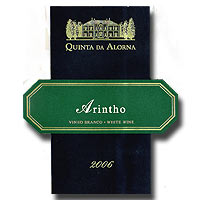 Last Thursday night I was not on my usual perch watching the (second) most amazing ALCS comeback in history. "Why not?", you ask, shocked this Red Sox fan was elsewhere.... I was attending an intimate wine dinner at (the new) L'Espalier hosted by ViniPortugal.
I would not have traded the opportunity for one moment. Much like the Red Sox game, I had my own uniquely amazing evening, learning more about the 'nerdier' side of Portuguese oenology, tasting an array of wines and bending the ear of Portugal's most revered (and perhaps most delightful) winemaker.
Last Thursday night I was not on my usual perch watching the (second) most amazing ALCS comeback in history. "Why not?", you ask, shocked this Red Sox fan was elsewhere.... I was attending an intimate wine dinner at (the new) L'Espalier hosted by ViniPortugal.
I would not have traded the opportunity for one moment. Much like the Red Sox game, I had my own uniquely amazing evening, learning more about the 'nerdier' side of Portuguese oenology, tasting an array of wines and bending the ear of Portugal's most revered (and perhaps most delightful) winemaker.
Many Americans think of Portuguese wines (beyond Port) simply as bargain, quaffing wines. Not bad, but not necessarily noteworthy or particularly complex either. When I received my invitation to last week's event, I was thrilled at the opportunity to meet Nuno Cancela de Bareu, Portugal's leading Winemaker and Consultant, and learn more about what ViniPortugal is up to these days. My experience (re)tasting about 12 wines - red, white, sparkling and dessert - only reconfirmed what I've known for sometime: Portuguese wines are worth seeking out.
Let's start at the beginning, shall we?
Nuno Cancela de Abreu is perhaps Portugal's primary, modern-day wine pioneer. He studied in both Portugal and France, ultimately receiving his degree in viticulture and enology from the Instituto Superior de Agronomia in Lisbon. He spent six years in the Duoro region, influencing the modern production of Port and Douro wines. Next, he planted a new vineyard on family land in the Dao and, as a result, launched two brands (Quinta da Giesta and Quinta Fonte do Ouro). Somehow he simultaneously managed Quinta da Romeira in the Bucelas region and single-handedly brought the wonderfully floral, minerally and fruity indigenous grape Arinto into its own. Thereafter he revolutionized Quinta da Alorna's operation in the Ribatejo region. Nuno's passion is to transform Portuguese wines (and their reputation) into fine, internationally recognized and coveted selections. And, in my humble opinion, the world should be grateful for it! He is well on his way.
Nuno was asked to introduce the group to several of his favorite Portuguese selections - not necessarily his own wines - available in the Boston market. The list of wines on offer are too long to discuss in great detail in this single post, so I'll simply list a few now and then spend some time here and there over the next months talking about various offerings in greater detail. Are you ready?
Whites
'07 Quinta de Catralvos Lisa (a lovely, fleshy, floral and clean Moscatel)
'07 Deu la Deu (aka "Muros Antigos" in Boston) Alvarinho (same as Albarino in Spain - wonderfully rich peaches and apricots, with a touch of bite)
'07 Quinta da Murta Arinto (it says Bucelas, the region, on the label, but this is 100% intensely floral and minerally Arinto - don't be confused!)
Reds
'04 Casa de Santar Rsv (a blend of Castelao, Touriga Nacional and Touriga Franca - soft, fine tannins and redberry fruits)
'06 Quinta do Coa ( a blend of Touriga Nacional, Touriga Roriz (Tempranillo) and Touriga Franca - one I had forgotten how much I enjoy, offering great floral aromas, dark fruits, some soft, caramel oak flavors and terrific spice)
'05 Cartuxa Rsv (Trincadeira, Aragonez and Alfrocheiro - this is a big food wine, offering fabulous dried plumb and raisin fruit aromas and flavors, spice and a subtle, lasting finish)
Bubbly
'07 Luis Pato Espumate Rose (this is 100% Baga, gently bubbly raspberries and strawberries!)
Dessert
Andresen 20 Yr. Tawny Port (who doesn't want hazelnuts, toffee and dried fruit flavors from their Tawny?!)
At the dinner Nuno gave us a rundown on the various regions in Portugal, how the climate and terroir impact the viticultural conditions that allow certain varietals to thrive, et. al. (Yes, I was in my happy place, gleefully unaware what was happening up the street at Fenway!) The thing to remember is Portuguese wines are made of native grape varietals - like those outlined above - you've likely never heard of. Don't think of that as intimidating or too foreign. Winemakers are following Nuno's lead, making these foreign-sounding wines approachable in the way they taste. The fact that our economy is so tough right now and the price of these wines is still amazingly "right" for the time being makes this a great place to explore. Much like the Languedoc in France offers a better price point for winelovers of the Southern Rhone (because these wines are less sought given historical winemaking practices), Portugal offers value wines that are complex, interesting and - delicious!
At the start of the evening Marcio Ferreira of ViniPortugal told us his organization's goal is to reinforce a favorable image of Portuguese wines. In speaking with Nuno, I learned just how tightly-knit their community is; fortunately, innovation, forsight and exceptional winemaking like Nuno's makes Marcio's job that much easier. They are all in it together!
Want to see for yourself? Head over to the Harvard Club tomorrow night and then report back your own findings by commenting below!
 Stumbled across a wine lately that sang a familiar tune but offered s o m u c h m o r e than the same old same old?
I find this happens when I least expect it - and often enough when the grapes involved in the winemaking process are local, or native to the area from whence they're grown. We talked about Zweigelt from Austria not that long ago. We also talked about the fun I had at the ViniPortugal wine dinner I attended. Perhaps one day we'll also talk about wines from Hungary. Each of these parts of the world offer tremendous value and a chance to tromp, ok - taste, through local offerings you likely can't pronounce. (Fortunately you don't have to be able to say the grapes' name to enjoy the wine!)
Stumbled across a wine lately that sang a familiar tune but offered s o m u c h m o r e than the same old same old?
I find this happens when I least expect it - and often enough when the grapes involved in the winemaking process are local, or native to the area from whence they're grown. We talked about Zweigelt from Austria not that long ago. We also talked about the fun I had at the ViniPortugal wine dinner I attended. Perhaps one day we'll also talk about wines from Hungary. Each of these parts of the world offer tremendous value and a chance to tromp, ok - taste, through local offerings you likely can't pronounce. (Fortunately you don't have to be able to say the grapes' name to enjoy the wine!)

 Last Thursday night I was not on my usual perch watching the (second) most amazing ALCS comeback in history. "Why not?", you ask, shocked this Red Sox fan was elsewhere.... I was attending an intimate wine dinner at (the new)
Last Thursday night I was not on my usual perch watching the (second) most amazing ALCS comeback in history. "Why not?", you ask, shocked this Red Sox fan was elsewhere.... I was attending an intimate wine dinner at (the new)  Portugal
Portugal